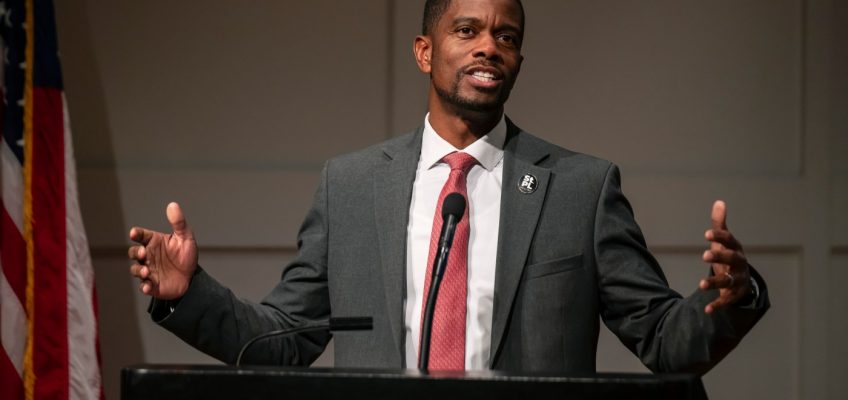The St. Thomas men’s basketball team stormed out of the gate to lead by 23 points en route to an 84-62 defeat of Summit League leader North Dakota State on Thursday night at the Lee & Penny Anderson Arena.
With the win, the Tommies (22-8 overall, 11-4 Summit) solidified their hold on second place in the conference, though the Bison — which entered the game with a three-game lead in the circuit with one game left after tonight — have already clinched the regular season crown.
North Dakota State (23-7, 13-2) won the initial matchup between the two teams, 68-65, on Jan. 17 in Fargo, but Thursday night belonged to St. Thomas. Carter Bjerke scored 18 of his 21 points before halftime as the Tommies went to the break leading 50-27. The Bison played their hosts to a near draw in the second half but couldn’t make any more than a one-point dent in the Tommies’ insurmountable advantage.
Bjerke and Nick Janowski each scored 21 points to share the game-high in scoring, while Nolan Minessale logged 17 points to surpass NDSU’s top scorer by four points.
The final game remaining until next week’s Summit League Championship tournament in Sioux Falls, S.D., a home matchup against Omaha (15-15, 8-7) at 7 p.m. Saturday.
Related Articles
Men’s hockey: Gophers stun No. 2 Michigan
Women’s basketball: St. Thomas keeps rolling with win against Kansas City
Men’s hockey: Gophers’ playoff tune up includes two series against nation’s best
Moorhead running back Taye Reich commits to Gophers
Gophers succumb to big run in loss to No. 3 Michigan




